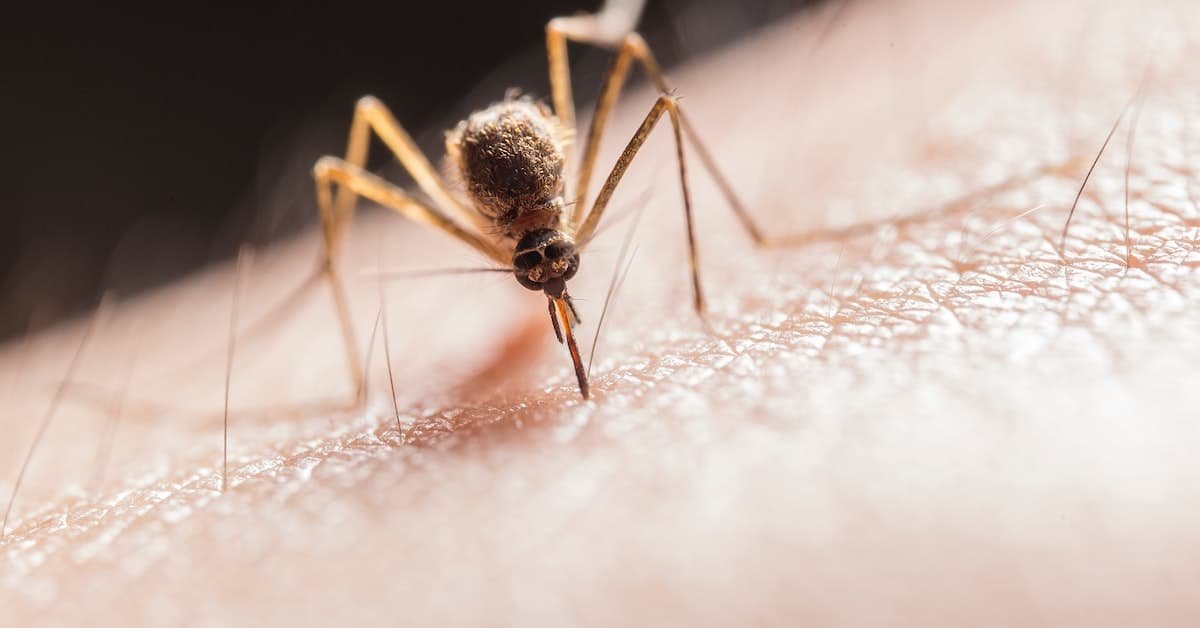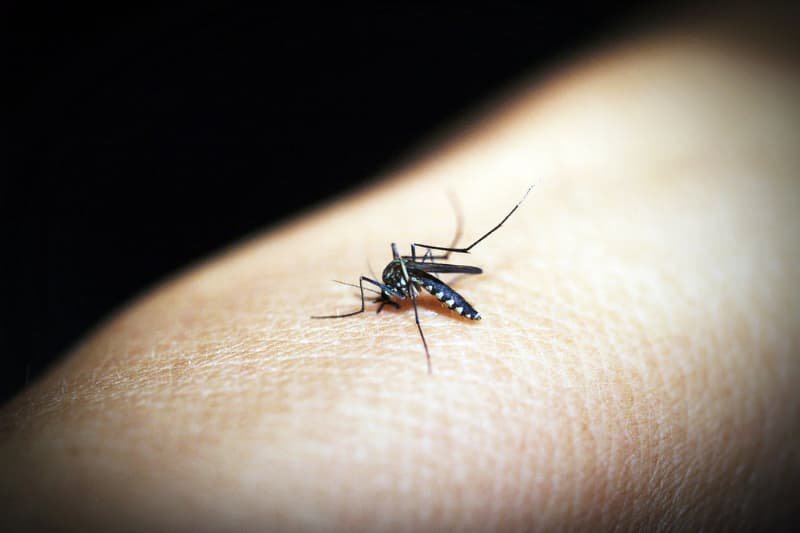
Mosquitoes are notorious blood-sucking insects that have been plaguing humans for centuries. With over 3,500 species of mosquitoes, they have developed various methods to locate their prey, including humans.
In this article, we will explore “Can mosquitoes see in the dark”, discovering their methods of finding and attacking humans.
Short Summary
- Mosquitoes have complex senses that they use to detect humans, They can sense carbon dioxide, chemicals in human sweat, and infrared light.
- To prevent mosquito bites, it is important to eliminate standing water sources. Use mosquito repellents and avoid outdoor activities during peak mosquito feeding times.
- Mosquito-borne diseases can range from mild to severe and can be fatal in some cases.
- Research is essential for identifying methods of controlling mosquito populations and preventing the spread of diseases.
Mosquito Sight and Smell
Mosquitoes can also rely on their visual perception to locate signs of humans within 50 feet. making them efficient hunters even in the dark.
Mosquitoes have compound eyes that allow them to detect movement, light, and color. But they are particularly sensitive to infrared light.
This means that they can see the heat signature of warm-blooded creatures. This makes it easier for them to locate their next meal.
Mosquitoes also have a keen sense of smell that allows them to track down their food source. They can detect carbon dioxide, body heat, and chemicals in human sweat from up to 100 feet away.
Mosquitoes use this information to navigate toward their prey. They can even detect individual humans in a group.
Factors Attracting Mosquitoes
Factors that attract mosquitoes include carbon dioxide, body heat, and chemicals found in human sweat. Mosquitoes have a developed sense of smell that allows them to detect these from a distance.
They use this sense of smell to locate their food source, which is usually human or animal blood.
Carbon dioxide attracts mosquitoes because it is a byproduct of human respiration. They can detect carbon dioxide from up to 50 feet away, making it easy for them to locate humans.
Mosquitoes are also attracted to body heat, which is why they tend to bite people who are active or exercising.
They are also attracted to chemicals found in human sweat, such as lactic acid and ammonia.
Eliminate sources of standing water, which is where mosquitoes breed. Using mosquito repellents, people can reduce their risk of being bitten by mosquitoes.
Preventing Mosquito Bites
To prevent mosquito bites use natural or chemical repellents. Remove scents that attract mosquitoes, and use insect-repelling candles.
Natural repellents like lavender and citronella can keep mosquitoes away. Use chemical repellents with 30% to 50% DEET for more intense protection.
Use outdoor soaps to keep mosquitoes away. Also, use scents that mosquitoes hate to replace the ones that attract them.
Citronella and lavender candles can also keep mosquitoes away.
Moreover, using mosquito nets can provide an extra layer of protection while sleeping.
If you are bitten by a mosquito, it is important to avoid scratching the area to prevent infection.
Some natural remedies for mosquito bites include:
Applying a cold compress and using aloe vera.
Using essential oils like tea tree oil or peppermint oil to reduce swelling and itching.
Dangers of Mosquito Bites

Mosquito-borne diseases are caused by viruses or parasites that are spread through the bite of an infected mosquito.
Common mosquito-borne diseases include malaria, dengue fever, Zika virus, West Nile virus, and chikungunya.
The symptoms of mosquito-borne diseases can range from mild to severe. This can include fever, headache, rash, muscle and joint pain, and fatigue. In some cases, these diseases can be fatal.
Take measures to prevent mosquito bites, especially in areas where diseases are common. This can include using insect repellents and wearing long sleeves and pants. Also avoiding outdoor activities during peak mosquito feeding times.
By taking precautions, you can reduce the risk of contracting mosquito-borne diseases.
Importance of Understanding Mosquito Behavior
Research on mosquito behavior is important for developing methods of controlling mosquito populations.
One important aspect of mosquito behavior research is understanding mosquito feeding patterns.
Female mosquitoes need a blood meal to develop their eggs.
By understanding what attracts mosquitoes to their hosts, scientists can develop strategies to reduce the number of mosquitoes.
Research on mosquito behavior has already led to the development of effective mosquito repellents, and continued research in this field is essential for protecting public health.
The effectiveness of mosquito repellents depends on their chemical composition and the length of time they remain on the skin.
Mosquitoes are more likely to bite individuals who produce more carbon dioxide or who are sweating.
Mosquitoes are attracted to dark clothing, which provides a contrast against the background.
Mosquitoes are more active during certain times of the day and in certain weather conditions. This allows you to take precautions during peak mosquito activity periods.
FAQs
What is the lifespan of a mosquito?
The lifespan of a mosquito varies depending on the species, but they typically live for a few weeks to several months.
Can mosquito bites cause an allergic reaction?
Yes, Skeeter syndrome, also known as mosquito bite allergy, is a term used to describe an allergic reaction to mosquito bites.
Symptoms of Skeeter syndrome can include:
- Excessive redness and swelling around the mosquito bite site
- Severe itching or a rash
- Development of large, hard, and painful welts
- Blistering or bruising around the bite area
- Low-grade fever (in some cases)
Do all species of mosquitoes carry diseases?
Not all species of mosquitoes carry diseases, but those that do can transmit a variety of mosquito-borne diseases to humans through their bites.
How do mosquito repellents work?
Mosquito repellents work by masking human scents and confusing mosquitoes’ ability to locate their food source.
Is there a way to completely eradicate mosquitoes?
There is no known method to completely eradicate all mosquitoes globally. Mosquitoes are widespread and highly adaptable insects that have been around for millions of years.



